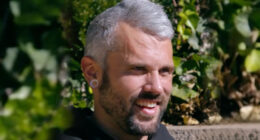England’s first not-for-profit IVF clinic is to open in London next year, run by a charity better known for providing abortions.
The British Pregnancy Advisory Service, which has been helping women terminate pregnancies for more than 50 years, has decided to set up its own fertility network to address the inequalities in IVF provision in England.
It plans to undercut private clinics and charge only the true cost of treatment, which it estimates will be between £3,000 and £3,500 each IVF cycle, not including drugs. There will be no expensive “add-ons” – such as embryo glue or “assisted hatching” – which patients often feel pressured into accepting at a very vulnerable time, despite many not being proved to work.
Women should be offered three cycles of IVF on the NHS, according to guidelines from the National Institute for Clinical Excellence (Nice), which recommends which drugs and treatments should be available on the NHS in England and Wales.
Yet IVF provision has been cut back in many areas, with some now offering no paid-for fertility treatment and others only one or two cycles. Some refuse to treat women over 35, those who cannot prove they are in a “stable relationship” or couples with one partner who has had a child in a previous relationship.
BPAS sees parallels between the provision of IVF in 2020 with the provision of abortion in 1968, when the charity was founded.
“In 1968, women were unable to access NHS-funded abortion care and were forced to turn to private providers, who often exploited their desperation by charging extortionate prices,” said Katherine O’Brien, associate director of communications and campaigns at BPAS. “Some private providers were also not offering an ethical service and were more akin to snake oil salesmen than medical professionals. While not as extreme as the backstreet abortions of the 1960s, it is clear that some private IVF providers are encouraging patients to undergo clinically unproven treatments at a huge personal and financial cost.”
The BPAS clinic is set to open in central London in September 2021, for egg collection and embryo transfers. Scans and other appointments will take place at satellite clinics operating from existing BPAS centres outside the capital, starting first in Peterborough and Swindon, before being rolled out across England.
The satellite clinics will use separate entrances and different clinics for patients seeking abortions and fertility treatment, to make sure a woman wishing to terminate a pregnancy is not sitting in the waiting room next to someone desperately hoping to conceive.
READ RELATED: What You Should Know Before Traveling to the United States
It will have no set criteria for treatment, according to Marta Jansa Perez, director of embryology at the charity. “We want our clinic to be as inclusive as possible in terms of ethnic diversity, sexual orientation and gender identities,” she said. “We’re not going to say bluntly say no to anyone but we are planning to follow all professional guidelines and provide patients with the full picture in terms of chances and risks to them and the baby that they will potentially have.”
No one will be turned away for being too old, “though we will have very honest conversations with people about their chances of conceiving and will tell them if they have next to no chance of it succeeding.”
Too many private clinics give people “false hope”, she said. People are often “strongly pushed the hope of buying a baby” when the truth is that treatment is statistically likely to fail in many cases.

Jansa Perez had fertility treatment to conceive her two children and says she understands how vulnerable patients can be. “I think that helps me a lot professionally, because I can see it from both sides. Even though I was successful, and I feel super privileged, I still know what it feels like,” she said.
“One of the things I feel very passionate about is that it’s important that people have access to fertility treatment. It’s something that impacts on people’s lives quite significantly, and it impacts on people’s mental health, as well.”
Like many people who have experienced infertility, she remembers “hating seeing pregnant ladies and babies” when she was trying to conceive. That’s why the BPAS clinic and its website will not have any pictures of pregnant bellies or babies.
The BPAS clinic will start small, aiming to carry out 200 egg collections in its first year. But Jansa Perez hopes to scale it up and eventually also become a registered IVF provider for the NHS, which means some patients could choose to have their NHS-funded cycles there.
The clinic will be regulated by the Human Embryology and Fertility Authority and Jansa Perez insists it will be transparent not just in its pricing but also its success rates. Private clinics have been accused of using misleading graphs and statistics to inflate their rates, by not being clear that the data only includes women under 35, according to the fertility watchdog.
For Jansa Perez, helping patients decide when to stop treatment – or potentially not to start it in the first place – will be as important as starting it. “A lot of patients feel that when they have a negative pregnancy test, they’re either rushed on to having another treatment cycle and there is not discussion of maybe not having any further treatment, looking at the whole picture and seeing what their chances are, and whether that’s something that they want to do, emotionally and financially,” she said. “We’re not selling them the baby, we’re selling them a chance to possibly have one.”
Source: Health & wellbeing | The Guardian








